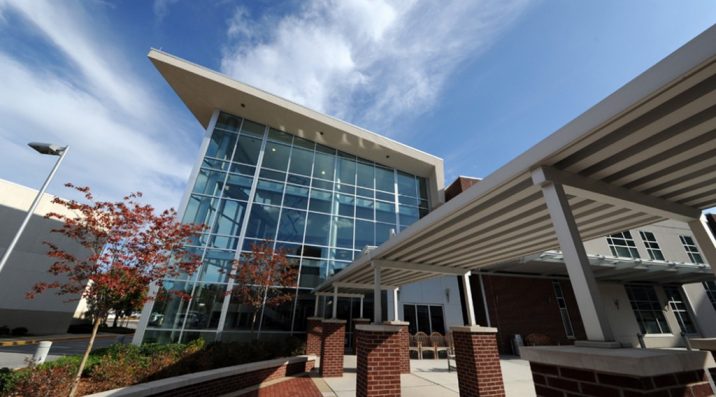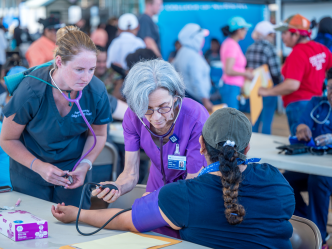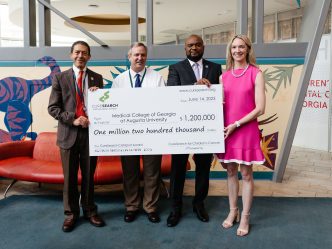Dr. Martha Tingen, associate director for the Cancer Prevention, Control & Population Health program, held an out-of-the-ordinary but important meeting with some of her colleagues from the Georgia Cancer Center on July 21. They were joined by a group of physicians from Africa.
Originally, the representatives from Africa were supposed to meet in person at the Georgia Cancer Center earlier this year, but due to COVID-19, Tingen and the group took advantage of current technology by holding the meeting on Microsoft Teams.
The center has seen great progress with its recent initiative, the Community Awareness & Access Research Education outreach program for underserved and minority communities, which focused especially on cancer screening and prevention. The medical professionals from the other side of the globe wanted to learn how to use this sort of program in their communities. This was all made possible by a $3.38 million grant from the Bristol Myers Squibb Foundation.
The first program of this kind at the Georgia Cancer Center started several years ago and focused on educating minorities and other at-risk groups about lung cancer and navigating those eligible for screening. As part of the new programs, Tingen and Dr. Samantha Sojourner will identify 600 minority and underserved community participants across rural and urban settings and connect them with some of the center’s physicians.
Not only is COVID-19 currently a major issue in some lower-income countries, but cancer has been a particular problem there for many years.
Dr. Bridgette Goeieman of Johannesburg, South Africa, was one of over a dozen participants from the continent, and shared her experience with fighting cervical cancer, something that is highly prevalent in her part of the world.
“Our main aim is to make sure that women are screened early, the cancers are detected in a timely manner,” she said. “We are losing a lot of women to this preventable cancer.”
Goeieman and the rest of the physicians were hoping to be able to get the word out about the importance of preventive health, especially to some of the smaller towns they served.
The meeting was the first part of a long-term plan to share what the Georgia Cancer Center has learned, which will include materials on how to implement the program.
“When they get it, it is going to be translated into 15 languages and implemented across Africa,” Tingen told the Augusta Chronicle.
Once conditions allow, Tingen and her team will travel to South Africa to train and mentor their new colleagues from there.
 Augusta University
Augusta University




